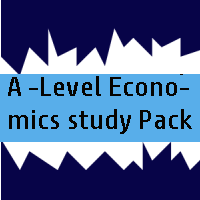
After reading and retaining comprehension of the contents of this chapter you should be able to:
The study of economics can be classified into normative and positive economics, depending on whether one is looking at proven facts or subjective statement. Alternatively, the study of economics can be at micro or macro level. Both aspects are going to be looked into in this book.
Economics of positivism deals with economic principles, laws and facts that can be objectively verified. These include issues such as the law of demand and supply. Normative economics deals with subjective statements such as what ought to be done or what is good or bad in a society. Normative economics involve individual opinion and unsubstantiated value judgments or insights. These include issues on fairness, equality, etc
Economics is a social science. This means that an economist attempts to understand economic problems rationally and systematically by collecting and sifting facts before coming to any conclusions or theories. In this case economists used a method very similar to that of scientists but their job is made more difficult by the fact that he cannot set up controlled laboratory experiments. Instead of studying objects, the economist has to study man and his economic decisions. Economic study, like any other social science, moves from abstraction to generalization. Economists collect data from many economic agents. In the data there are always outliers and inconsistent behaviours!, but the economist reads general or average behaviours or trends to come up with widely predictable conclusions, laws, theories and principles.
Resources are scarce. Scarce resources are used to make goods and services. Resources that are not scarce are free goods, which do not have value. These include free air that we breathe or desert sand.
All people have the same basic needs. People usually want more than they need and human wants are without limit. This is because the resources needed to make goods and services are scarce as compared with people’s wants and this is the centre of the economic problem. Nobody can have sufficient goods to satisfy all their needs and wants, so people must choose which wants they will satisfy. Scarce resources have alternative uses.
To continue reading, please buy this resource here: https://eduzim.co.zw/downloadables/product/a-level-economics-study-pack/
By: T.Titus Nyakudyara
Twitter: @NyakudyaraTitus
Former Vice President Phelekezela Mphoko has died aged 84, presidency spokesman George Charamba has confirmed.…
The Zimbabwe School Examinations Council (ZIMSEC) opened its online portal for Grade 7 results…
2024 ZIMSEC Grade 7 Results Now Out The Zimbabwe School Examinations Council (ZIMSEC) has officially…
We’re bringing free WiFi to different parts of Zimbabwe to help you access eduzim.co.zw for…
Sadza is a simple, hearty dish that forms the backbone of many Zimbabwean meals. It's…
Caesar Salad A classic Caesar salad is a simple yet flavorful dish with crisp romaine…